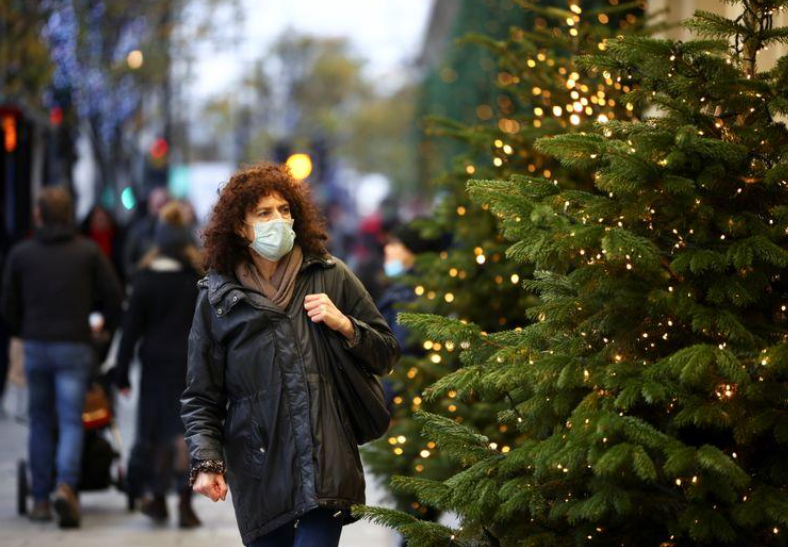Merkel orders German lockdown and UK urges Christmas caution


Germany is to go into a hard lockdown over Christmas and into the new year, from Dec 16 to Jan 10, after Chancellor Angela Merkel blamed Christmas shopping for causing a "considerable" rise in social contacts and a subsequent increase in cases of novel coronavirus infection.
"I would have wished for lighter measures. But due to Christmas shopping, the number of social contacts has risen considerably," she said.
Latest figures from the Robert Koch Institute revealed an increase of 20,200 infections, taking the national total for the pandemic so far to more than 1.3 million, with 21,787 deaths.
Last week Merkel urged people to exercise restraint when it came to Christmas socializing, to avoid it being "the last Christmas with our grandparents."
"I'm sorry, I really am sorry from the bottom of my heart," she continued. "But if the price we pay is 590 deaths a day that is not acceptable in my view."
Following a meeting with the heads of the country's 16 states, she has now toughened up the official stance, saying it was government's job to "prevent an overload of our health systems and that's why there is an urgent need to take action."
Hans Brandt, political correspondent of Germany's international broadcasting service DW, said Merkel had managed to win over local leaders after initial disagreements over the best way forward.
"There have a lot of acrimonious exchanges in these meetings, they have often taken hours, as they have often had great difficulty agreeing on what measures should be taken," he said. "Many regional leaders have, in recent months, pushed for a more relaxed attitude. That has clearly not worked."
Schools and non-essential shops will close from Wednesday, with essential shops and banks remaining open, and New Year celebrations and the sale of fireworks have been banned.
Previously, Germany had been praised for its handling of the pandemic, after becoming one of the first countries to begin the tentative reopening of its economy, but it now has the 12th highest number of COVID-19 cases in the world.
Meanwhile, the head of NHS Providers, the umbrella group representing National Health Service hospital trusts in England, has urged Britons to learn from the spike in infections in the United States following the Thanksgiving holiday, when it comes to planning Christmas socializing.
"There seems to be a sense at the moment that, 'hey because the government's put these rules down, there's no risk to people having more social contact over Christmas'," Chris Hopson told BBC Breakfast.
"Of course, part of it is about sticking to the rules but any kind of extra social contact over Christmas, particularly with those who are vulnerable to the virus, actually is very risky.
"Everybody needs to think really, really carefully what are they going to do over Christmas.
"It's not 'is what we're going to be doing sticking within the rules?' It's 'how much risk are we going to cause to the people we interact with?'"
The government has spoken to train companies amid concern social distancing measures could cause major transport problems this Christmas.
Pre-booked seats and distancing measures in carriages mean that if a service is cancelled, passengers cannot just get on the next one, they must wait for another service with sufficient space, which could lead to some of them facing lengthy delays.
With no services on Christmas Day and only a small number on Dec 26, people also face limited traveling options, increasing the potential for social distancing to break down and infections to spread.
Meanwhile, Health Secretary Matt Hancock has dashed the hopes of some rural areas hoping their lockdown level could be lowered this week as part of a government review, after fears such measures could further fuel infection rates.
Several Conservative members of Parliament representing rural constituencies, who feel their areas have been unfairly lumped in with nearby urban conurbations in the highest level of restriction, tier 3, had written to Hancock hoping that their status could change to something more representative of their individual circumstances.
"I understand the force of your arguments … and I know you made them in the best interests of your constituents, as you always have done," Hancock wrote to two MPs from Lincolnshire in the East of England.
"It is important to note that we know from lived experience over recent months that where narrow carve-outs take place in the face of higher rates in neighboring areas, time and again these carved out areas simply catch up, and often overtake their neighboring areas."
































